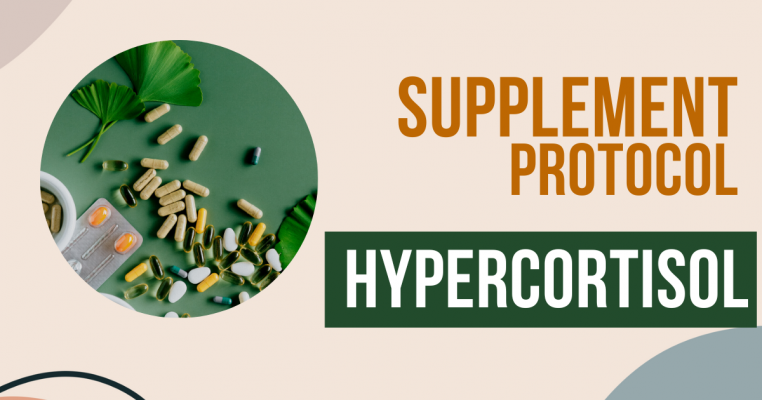A few years ago, connecting the gut to the immune system was a novel concept. We’ve learned a lot since then, including that up to 70% of our immune system lives in our gut. Immune health relates directly to the health of our gut.
In the past, many people looked at what we ate as distinct and independent of how we felt. We assumed that every illness was externally obtained – from that person sneezing nearby you on the plane, to that skin rash that mysteriously appeared and won’t go away. Over the past few years, we have learned a lot about our immune system and what happens in our gut.

The Gut is the Key to Health
What we have learned is that the gut is made up of intestinal mucosa. This is a complex barrier that allows for active and passive transport of substances. The gut lining acts as a gatekeeper – allowing for some substances to pass through while it preventing others. The mucosa is the gatekeeper. Keeping the gut healthy is critical to normal physiological function and prevention of disease.
The Intestinal Barrier
The picture below is a representation of the lining of our small intestine. The gut lumen is a fascinating and complex organism that allows certain particles and substances to pass through to the rest of the body.

The intestine is semi permeable – it allows nutrients to pass through the gut, while also maintaining a barrier function to keep potentially harmful substances (such as antigens) from leaving the intestine and migrating to the body more widely.
There are small “hairs” called microvilli within the digestive tract. Microvilli are tiny – approximately 100 nanometers in diameter and from approximately 100 to 2,000 nanometers. The microvilli look like a fuzzy fringe (under an electron microscope) and this is where the term “brush border” comes from – like the bristles of a paintbrush.
Intestinal Permeability (“Leaky Gut”)
In individuals with a healthy gut, the spaces between the epithelial cells are called “tight” (“tight junctions”). Tight junctions prevent dangerous particles and substances from passing through to the body. Intestinal permeability is a term describing the loss of control of substances passing from inside the gastrointestinal tract through the cells lining the gut wall, into the rest of the body.
Here is an uncomplicated way to understand the concept.
Hold your hand up, inside of your palm towards your face with your fingers next to each other. Very little light comes in, right? Now spread your fingers apart (like you are peeking at a scary movie), and now the light comes in.
Your fingers represent the lining of your intestinal wall. A healthy intestinal wall doesn’t let many particles through. An unhealthy intestinal wall allows particles into the body – dangerous ones! This is the condition that is commonly referred to as “leaky gut.”
A protein called zonulin regulates these tight junctions in the small intestine. Increased zonulin occurs in the presence of harmful bacteria, gliadin (a protein in wheat), and celiac disease. Intestinal permeability rapidly increases in response to zonulin, potentially causing large macromolecules past the intestinal barrier.

Leaky Gut and Immune Health
Scientistic have implicated leaky gut as a major contributor to chronic immune issues. When leaky gut occurs, it triggers an immune response, and the body ignites inflammation in the gut as the immune system reacts to molecules entering the bloodstream. The body reacts negatively to molecules (and foods) that it once tolerated without issue.
Within the gut, there are cells throughout which are part of our lymphatic system and which support our immune system. When there is a leaky gut or dysbiosis, it compromises the immune system.
A compromised immune system can lead to inflammation which can cause frequent sickness, autoimmune disease, mood disorders, skin disruptions, hormonal imbalances, fatigue, food sensitivities, joint pain, moodiness, irritability, sleeplessness, autism, and skin problems like eczema and psoriasis.

What Causes Leaky Gut?
Leaky gut (intestinal permeability) can be caused by:
- food sensitivities
- chronic stress
- disease
- antibiotics (that we take and in the food we consume)
- some medications (NSAIDs, corticosteroids, oral contraceptives, anti-depressant medications)
- excessive alcohol
- gluten
- imbalanced intestinal bacteria
- gut dysbiosis (imbalanced bacteria)
- autoimmune diseases like Crohn’s and Celiac*
*Intestinal permeability may cause Crohn’s and Crohn’s may cause intestinal permeability.It is a bit of a chicken and egg scenario! Sometimes we don’t know what came first.

Conditions Caused by Intestinal Permeability
Damage to the brush border can cause poor nutrient absorption, bacterial dysbiosis, and inflammation, all of which contribute to many chronic disease processes, including:
- All autoimmune diseases (eg, Celiac disease, rheumatoid arthritis, Lupus, Type 1 diabetes)
- Endocrine diseases (eg, polycystic ovary syndrome, Type 2 diabetes)
- Neurological disorders (eg, Parkinson’s disease, multiple sclerosis, schizophrenia)
- Cardiovascular disease
- Allergies and asthma
- All gastrointestinal disorders (eg, IBS, IBD, Crohn’s disease, ulcerative colitis, celiac disease)
- Inflammatory diseases (eg, arthritis and other causes of joint pain)
- Chronic infections

Why Your Doctor May Not Mention Leaky Gut
“Physicians don’t know enough about the gut, which is our biggest immune system organ,” says gastroenterologist Donald Kirby, M.D., director of the Center for Human Nutrition at the Cleveland Clinic.
They do not teach doctors about “leaky gut” during their medical school training. There is no current training about how leaky gut contributes to illness, nor what triggers leaky gut.
Even if you have been diagnosed with leaky gut, it requires exploring what caused leaky gut, what problems leaky gut is causing to your body, and how to repair and heal your gut.
Testing for Leaky Gut
There are a few tests that can tell us if there is evidence of leaky gut, however, a confirmatory test is often unnecessary, unless lifestyle and nutrition changes could not improve health and more exact information is needed. We have several functional tests we can use to help us get to the root cause of leaky gut and an impaired immune system.
You affect your health by what you do, by what you think and what you are exposed to.
– Kara Louise MS, Certified Functional Medicine Practitioner
How to Heal Your Gut
The brilliant news is that if we focus on identifying what is challenging the gut and then healing and repairing the gut, we can promote a healthy barrier. A healthy gut promotes strong immunity, and also a healthy brain! Factors that promote a healthy barrier include:
- A healthy anti-inflammatory diet with adequate fiber
- Vitamins A & D
- Zinc
- Probiotics
- Certain herbs and plants
There is wonderful news! You can control what you put in your body and heal your gut – and strengthen your immune system.
Block "1358" not found
The Wellness Journal







